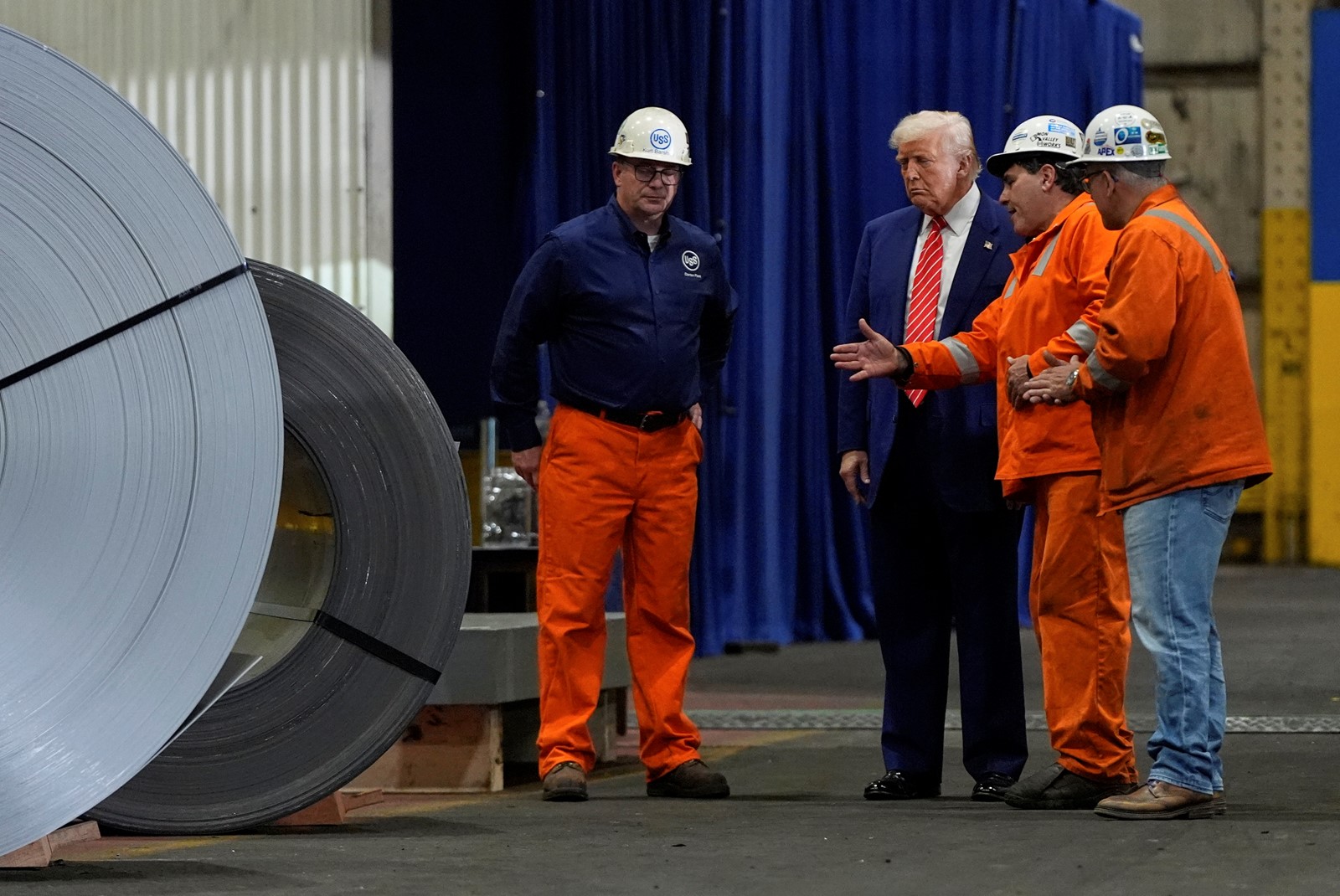
U.S. President Donald Trump hiked nearly all of his tariffs on steel and aluminum imports to a punishing 50% on Wednesday in a move that’s set to hammer businesses from automakers to home builders, and likely push up prices for consumers even further.
Foreign-made steel and aluminum is used in household products like soup cans and paper clips, as well as big-ticket items like a stainless-steel refrigerators and cars. Economists warn that such heightened levies could significantly squeeze the wallets of both companies and shoppers alike. But Trump argues that his latest import taxes are necessary to protect U.S. industries.
The 50% tariffs went into effect just after the clock struck midnight on Wednesday. The two metals had previously faced 25% tariffs worldwide since mid-March, when Trump’s order to remove steel exemptions and raise aluminum’s levy from his previously-imposed 2018 import taxes went into effect.
Steel and aluminum from the U.K. is the exception. British imports of these metals are still levied at 25%, per a proclamation issued by Trump on Tuesday afternoon, which pointed to a recent trade deal reached between the two countries.
Meanwhile, Europe and the United States say progress has been made but there were no breakthroughs during a meeting in Paris to negotiate a tariff settlement.
The European Union’s top trade negotiator, Maroš Šefcovic, met Wednesday with his American counterpart, U.S. Trade Representative Jamieson Greer, on the sidelines of a meeting of the Organization for Economic Cooperation and Development.
“I am pleased that negotiations are advancing quickly,” said Greer. He said the EU negotiators showed a “willingness by the EU to work with us to find a concrete way forward to achieve reciprocal trade. I look forward to continued constructive engagement in the coming days and weeks.”
Why is Trump raising metal tariffs?
Trump says it’s all about protecting U.S. industries. He reiterated that argument on Friday, when he first announced the 50% tariff on imported steel during a visit with steelworkers in Pennsylvania, where he also discussed a “planned partnership” between U.S. Steel and Japan’s Nippon Steel.
In his speech at U.S. Steel’s Mon Valley Works–Irvin Plant in suburban Pittsburgh, Trump said that the tariff hike would “further secure the steel industry in the U.S.”
Shortly after, he took the same tone when sharing plans to also raise tariffs on imported aluminum.
In Tuesday’s proclamation, Trump also said that the higher tariffs would ensure that imported steel and aluminum would “not threaten to impair the national security.”
How is the industry responding?
While some analysts have credited the tariffs Trump imposed during his first term with strengthening domestic production of steel and aluminum, many others have warned that stark new levies can make it difficult for the industry to adjust.
Some organizations representing metal workers also note that tariffs aren’t the only solution needed to boost U.S. manufacturing.
“While tariffs, used strategically, serve as a valuable tool in balancing the scales, it’s essential that we also pursue wider reforms of our global trading system,” David McCall, international president of the United Steelworkers union said in a statement, noting that work must be done “in collaboration with trusted allies” like Canada — the top exporter of steel and aluminum to the U.S. — to help “contain the bad actors.”
Matt Meenan, vice president of external affairs at the Aluminum Association, added that the trade group “appreciates President Trump’s continued focus on strengthening the U.S. aluminum industry,” but that “tariffs alone will not increase U.S. primary aluminum production.”
“We also need consistent, predictable trade and tariff policy to plan for current and future investment,” Meenan said.
Meanwhile, the American Primary Aluminum Association, which advocates for stronger trade enforcement, applauded Trump’s latest tariff increase on foreign aluminum.
“For decades, subsidized foreign producers have hollowed out domestic aluminum manufacturing,” APAA President Mark Duffy said in a statement, calling Trump a “strong leader who is fighting to rebuild domestic manufacturing and protect thousands of American aluminum jobs.”
What products will be impacted?
A range of businesses that rely on foreign-made steel and aluminum have already begun feeling the impacts of Trump’s previously-imposed levies. But the latest anticipated hikes could drive up costs even more.
Steel and aluminum are used in a range of products like washing machines, consumer electronics and cars. Much of the auto industry relies on a global supply chain. And even if you aren’t in the market to buy a new vehicle, repairs could involve parts that use imports of either metal, driving up overall maintenance and ownership costs.
In the grocery aisle, steel and aluminum are ubiquitous in the packaging for many foods, including canned tuna, soup and nuts. Experts warn that hiking import taxes on these materials could led to higher grocery prices overall, further straining consumers wallets.


 PREVIOUS ARTICLE
PREVIOUS ARTICLE
